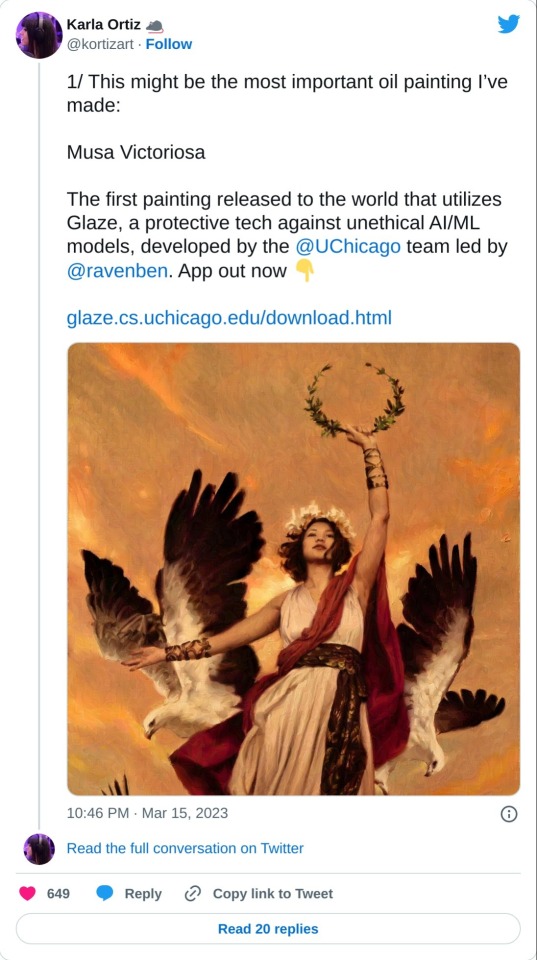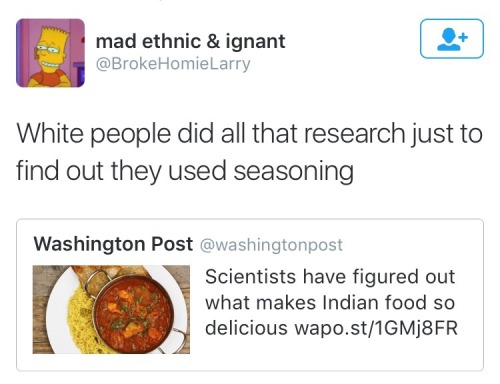Cardinalfandom - Cardinal's Moss

More Posts from Cardinalfandom and Others

Lemony Snicket: Dear reader, if you have just picked up this book, then it is not too late to put it back down.
10-year-old me: I think the fuck not
New writing rule: Checkov’s friend
If you introduce a named character with a relationship to a protagonist, their character arc must be resolved in a way that feels reasonable and satisfying
Which is to say: they can’t just dissappear when they’re no longer a convenient plot device
A Series of Unfortunate Events is a Passover Story

So I’ll be honest, I’m not the best Jew to be writing this post. I first saw Fiddler on the Roof at age 19, and the first words out of my mouth were, “Wow! This is really Jewish!” (Meanwhile, my mom was commenting on the Yiddish anachronisms of this play about Russian Jews, because she’s a good Jew who actually Knows Jewish Things) But I hadn’t really heard or seen much about just how incredibly Jewish A Series of Unfortunate Events is, which is a shame because Lemony Snicket/Daniel Handler is himself Jewish. So Jewish, in fact, that he helped write the New American Haggadah (including a part about how, just as there are Four [types of] Children who ought to be accommodated during Passover, there are Four Parents who really ought to be ignored.) But seeing as I can’t find anyone better to write about all the cool Jewish culture and symbolism in A Series of Unfortunate Events, I’ll take over until someone else comes along and does a better job.
Spoiler warning, of course. There’s a lot of deep lore that gains new meaning when looked at through a Jewish lens, including the symbolism behind horseradish and the sugar bowl.
Keep reading
Glaze is out!
Tired of having your artwork used for AI training but find watermarks dismaying and ineffective?
Well check this out! Software that makes your Art look messed up to training AIs and unusable in a data set but nearly unchanged to human eyes.
I just learned about this. It's in Beta. Please read all the information before using.

writer survey question time:
inspired by seeing screencaps where the software is offering (terrible) style advice because I haven't used a software that has a grammar checker for my stories in like a decade
if you use multiple applications, pick the one you use most often.
Things I need more of in my life: Midwestern gothic/horror stories.
Barns with no doors that almost seem to breathe, their walls bending inward and outward every few seconds.
That one diner at the edge of town where the people you see through the windows on the outside are not the same as the ones inside.
That late night train that travels slowly across the tracks, steam leaking out of the closed doors of the cars. If you listen closely you can hear skittering inside them.
In the park there is a circle of dead grass right behind the swings and if you get close enough you can hear it whispering.
Fields of corn that rustle in the wind and anyone foolish enough to wander into them are never heard from again. Sometimes the farmers will find their shoes during the harvest.
Back roads that don’t make geographical sense. Sometimes you just get stuck in a curve for an hour only to find yourself a mile away from the nearest town afterwards.
Passing the same farm house five times in a row.
Never listen to the crows. Their secrets will alter you in terrible ways.
The scarecrows are always wearing new clothes whenever you see them, even when you take your eyes off them for only a moment.
Don’t ever mention the man who waves to you on your way to work every morning. Don’t mention that he’s been dead for ten years.
Never buy flowers from the flower shop on Main Street. You know the one: the doors are always open, even in winter, and you can smell the sweet scent of roses mixed with something rotting.
ooh you mentioned buying a folk horror anthology in the tags of that horror post, can i ask which one? i’d love to read more folk horror but i don’t really know where to start (also if you have other folk horror recs i would not be upset)
Yeah of course, happy to help! I bought The Fiends in the Furrows: An Anthology of Folk Horror edited by David T. Neal which features stories by current writers (and there's a second anthology with more).
If you're looking to start with some classic folk horror then there's a few major authors and stories that are worth checking out (many of these should be available to read online for free):
'The White People' by Arthur Machen
'The Lottery' by Shirley Jackson
'The Black Reaper' by Bernard Capes
'The Ash Tree' by M. R. James
'Pallinghurst Barrow' by Grant Allen
'The Willows' by Algernon Blackwood
Ritual by David Pinner (basis for The Wicker Man)
'The Music on the Hill' by Saki
The Great God Pan by Arthur Machen
'The Sin Eater' by Fiona MacLeod
Harvest Home by Thomas Tryon
'The Children of the Corn' by Stephen King
And if you want some recent folk horror then these are worth a go:
The Loney by Andrew Michael Hurley
The Owl Killers by Karen Maitland
The Daylight Gate by Jeanette Winterson
Ghost Wall by Sarah Moss
The Plague Stones by James Brogden
Through the Woods by Emily Carroll (graphic story collection)
The Ritual by Adam Nevill (honestly the film is much better and well worth watching, but the first half of the book is fantastic)
Wakenhyrst by Michelle Paver (gothic horror meets folk horror)
The Hidden People by Alison Littlewood
Dark Harvest by Norman Partridge
The Only Good Indians by Stephen Graham Jones (not a traditional folk horror novel but it explores the role of Native American folklore & culture in the modern day in a really interesting way)
The Reddening by Adam Nevill
Pine by Francine Toon
-
 eliashibpowerministries liked this · 2 days ago
eliashibpowerministries liked this · 2 days ago -
 chaoticbutterflyrebel liked this · 3 days ago
chaoticbutterflyrebel liked this · 3 days ago -
 snow-white09 liked this · 3 days ago
snow-white09 liked this · 3 days ago -
 gothfagcrunch liked this · 3 days ago
gothfagcrunch liked this · 3 days ago -
 thestev3 liked this · 4 days ago
thestev3 liked this · 4 days ago -
 hallucynatiing liked this · 4 days ago
hallucynatiing liked this · 4 days ago -
 em1040 liked this · 4 days ago
em1040 liked this · 4 days ago -
 soupismyfavouriteword reblogged this · 4 days ago
soupismyfavouriteword reblogged this · 4 days ago -
 herondales reblogged this · 4 days ago
herondales reblogged this · 4 days ago -
 masterinfangirlissues reblogged this · 4 days ago
masterinfangirlissues reblogged this · 4 days ago -
 laadylunaa liked this · 4 days ago
laadylunaa liked this · 4 days ago -
 originallandlockedmariner liked this · 5 days ago
originallandlockedmariner liked this · 5 days ago -
 mikefrawley liked this · 5 days ago
mikefrawley liked this · 5 days ago -
 justmeagain4 reblogged this · 5 days ago
justmeagain4 reblogged this · 5 days ago -
 shortstack-pancakes liked this · 5 days ago
shortstack-pancakes liked this · 5 days ago -
 lavieisforme reblogged this · 5 days ago
lavieisforme reblogged this · 5 days ago -
 the-mpreg-guy liked this · 5 days ago
the-mpreg-guy liked this · 5 days ago -
 4c-aperture reblogged this · 5 days ago
4c-aperture reblogged this · 5 days ago -
 minipsychologist reblogged this · 5 days ago
minipsychologist reblogged this · 5 days ago -
 kingsbridgelibraryteens reblogged this · 6 days ago
kingsbridgelibraryteens reblogged this · 6 days ago -
 novelsandnerdiness liked this · 6 days ago
novelsandnerdiness liked this · 6 days ago -
 chuck8142 liked this · 6 days ago
chuck8142 liked this · 6 days ago -
 xilaolim liked this · 6 days ago
xilaolim liked this · 6 days ago -
 eericalaurenn liked this · 1 week ago
eericalaurenn liked this · 1 week ago -
 welovetillwedie reblogged this · 1 week ago
welovetillwedie reblogged this · 1 week ago -
 jcverne liked this · 1 week ago
jcverne liked this · 1 week ago -
 itsumaidemo reblogged this · 1 week ago
itsumaidemo reblogged this · 1 week ago -
 diamondlikestoread reblogged this · 1 week ago
diamondlikestoread reblogged this · 1 week ago -
 tinynavajoreads reblogged this · 1 week ago
tinynavajoreads reblogged this · 1 week ago -
 maramontwrites liked this · 1 week ago
maramontwrites liked this · 1 week ago -
 darkrynrealms liked this · 1 week ago
darkrynrealms liked this · 1 week ago -
 brfenn reblogged this · 1 week ago
brfenn reblogged this · 1 week ago -
 eggs-can-draw liked this · 1 week ago
eggs-can-draw liked this · 1 week ago -
 haganenoanna liked this · 1 week ago
haganenoanna liked this · 1 week ago -
 kittymaiden reblogged this · 1 week ago
kittymaiden reblogged this · 1 week ago -
 basementdweller liked this · 1 week ago
basementdweller liked this · 1 week ago -
 little-faerie-girl-blogs liked this · 1 week ago
little-faerie-girl-blogs liked this · 1 week ago -
 thehobbitwithstickyuppyhair reblogged this · 1 week ago
thehobbitwithstickyuppyhair reblogged this · 1 week ago -
 grangers-army reblogged this · 1 week ago
grangers-army reblogged this · 1 week ago -
 mariethelibrarian reblogged this · 1 week ago
mariethelibrarian reblogged this · 1 week ago -
 largersillierfriend liked this · 1 week ago
largersillierfriend liked this · 1 week ago -
 tattedblink reblogged this · 1 week ago
tattedblink reblogged this · 1 week ago -
 lueursoiree reblogged this · 1 week ago
lueursoiree reblogged this · 1 week ago -
 readingfolklore reblogged this · 1 week ago
readingfolklore reblogged this · 1 week ago -
 cultgoddess reblogged this · 1 week ago
cultgoddess reblogged this · 1 week ago -
 madathondogathon liked this · 1 week ago
madathondogathon liked this · 1 week ago -
 blankinsidecards reblogged this · 1 week ago
blankinsidecards reblogged this · 1 week ago -
 lostboy-ish reblogged this · 1 week ago
lostboy-ish reblogged this · 1 week ago



